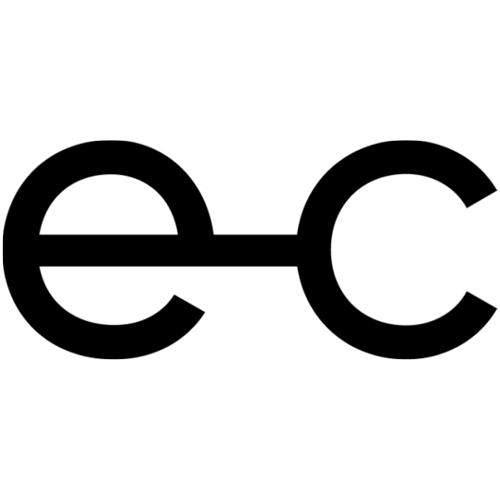Kids Eye Care for Children in Wetherill Park
As parents, we always want what is best for our children, especially their health. Maintaining good eye health in children to avoid learning difficulties and improve their overall development and quality of life.
Let's delve into the various aspects of kids eye care, including common eye conditions in children and the best practices for protecting your child's vision. Whether you are a new parent seeking guidance or wanting to expand their knowledge on this topic, you have come to the right place.
Why is Kids Eye Care Important?
Access to kids eye care services in Wetherill Park is pivotal as it facilitates early detection and treatment options for vision problems in local children. It's well-documented that children's vision issues can significantly impact their academic performance. These conditions can hinder a child's ability to read, write, and engage in other critical learning activities, impeding their educational progress.
Untreated vision conditions can also lead to more severe complications in the long run. Therefore, timely access to local, quality kids eye care is a cornerstone in safeguarding children's vision health, ensuring they have the visual tools necessary to succeed academically.
Common Kid's Eye Conditions
Myopia (Nearsightedness or Shortsightedness)
Myopia, also known as nearsightedness or shortsightedness, is a common refractive error where the eye grows too long from front to back. It causes light to focus in front of the retina instead, which makes distant objects blur while close objects remain clear. Symptoms often include frequent squinting, eye strain, headaches, and difficulty seeing distant objects clearly.
Hyperopia (Farsightedness or Longsightedness)
Hyperopia (farsightedness or longsightedness) is the opposite of myopia. The eye is too short from front to back, causing light to focus behind the retina. It means that distant objects may be seen more clearly than close ones. Hyperopia is often present at birth, and its symptoms can include difficulty focusing on nearby objects and squinting, eye strain, and headaches.
Amblyopia (Lazy Eye)
Amblyopia, known as lazy eye, occurs when one eye fails to develop properly during early childhood. The affected eye may wander inward or outward, and the brain may start prioritising the vision of the stronger eye. Symptoms include poor depth perception, squinting, tilting the head to use the other eye, and shutting one eye to see.
Strabismus (Crossed Eyes)
Strabismus, or crossed eyes, is where the eyes do not align correctly due to imbalances in the muscles controlling eye movement. An eye may look straight ahead while the other turns inward, outward, upward, or downward. Symptoms include misaligned eyes, difficulty reading, and problems with depth perception.
Kids Eye Exams
Regular eye examinations are health maintenance for children. Children's eyes should be tested regularly for vision issues and eye diseases to be detected and treated early. Good vision is important for your child's educational, physical and social development.
The children's optometrist will evaluate the child's eye health, sharpness of vision (visual acuity), and need for glasses by checking their ability to focus at different distances and alignment. It will also include a test for colour blindness, depth perception and a thorough examination of the health of the child's eyes, both inside and out. The tests are non-invasive and comfortable for children to undergo.
The Raising Children website recommends having your child's first eye exam between 6 and 12 months. It’s a good idea for your child to see an optometrist before they start school and every 2 years after that. Children who need eyeglasses or contact lenses should have eye exams yearly or as their experienced optometrist recommends.
Vision Screening at School
School-based vision screenings in Wetherill Park play a role in the early detection of potential eye problems in children. These screenings, usually conducted by trained school healthcare professionals, are designed to identify prevalent vision abnormalities such as myopia (short-sightedness), hypermetropia (long-sightedness), or strabismus (crossed eyes).
These vision screenings are not exhaustive and cannot replace a comprehensive eye examination by an eye care professional. A follow-up exam with an optometrist can provide a more in-depth evaluation of the child's eyesight and overall eye health. Children's eye test includes colour vision, depth perception, and eye alignment, typically not covered in a school-based screening.
Vision Care Tips for Parents
For parents, vision care tips are aimed at children living in Wetherill Park. These tips will help you support your children's healthy vision, considering the lifestyle and environment of this local area.
Recognising Signs of Eye Strain or Discomfort
Children might not always express discomfort related to their vision clearly. As a parent, watch for signs such as frequent squinting, excessive eye rubbing, headaches, or problems focusing on distant or nearby objects. These might indicate eye strain or other vision-related issues.
Practical Tips for Healthy Vision
Outdoor Play: Encourage your children to play outdoors. Wetherill Park has numerous parks and green spaces where children can engage in activities that exercise their eyes by focusing at different distances.
Limit Screen Time: Limit the time your child spends on digital devices, as it results in eye strain or visual stress. Encourage regular breaks during periods of continuous screen use to help prevent eye strain.
Regular Eye Tests: Regular eye examinations with a local optometrist can help detect vision problems early. Wetherill Park offers several qualified and friendly optometry clinics, such as Eye Concepts Optometrist, where you can easily book an appointment online.
Nutrition for Healthy Vision in Wetherill Park
A balanced diet - fruits, vegetables, lean proteins, and healthy fats - is key to maintaining healthy vision. Foods such as citrus fruits, leafy greens, fish, eggs, and nuts, all readily available in the local community of Wetherill Park's local markets, are packed with essential nutrients like Vitamins A, C, E, and Omega-3 fatty acids, which are beneficial for eye health.
Eyewear and Contact Lenses for Children
Regarding corrective eyewear for children, there are generally two options: glasses and contact lenses.
Glasses are often the first choice for children due to their ease of use and maintenance. Modern glasses come in durable, lightweight materials that are perfect for active kids. Plus, they can be an excellent way to express personal style, with numerous designs and colours available.
On the other hand, daytime contact lenses might be suitable for older children and teenagers, especially those active in sports or concerned about their appearance. Contact lenses require more careful handling and hygiene practices but provide excellent vision correction without being visible.
Parents often express concerns about the safety and practicality of contact lenses for their children. It's important to remember that contact success depends more on responsibility and cleanliness than age. Many children can wear contacts, demonstrating the necessary maturity and commitment.
Another common concern is cost. While contact lenses can be more expensive than glasses, many insurance plans offer benefits that can help offset the cost. It's worth discussing the options with your optometrist to understand which solution may be the most appropriate and affordable for your child's specific needs.
How To Choose a Kids Eye Care Provider in Wetherill Park?
Selecting the right eye care provider for your child is a crucial task that requires careful consideration. In Wetherill Park, there are a number of reputable kids optometrists who are experienced in child eye care.
When selecting a provider, consider their qualifications, experience and patient reviews. A trusted professional should not only have the necessary academic credentials but positive patient feedback. Always ensure that the healthcare professional you choose is comfortable working with children and has a welcoming and child-friendly clinic environment.
It's also worth considering the provider's location and accessibility. A local provider can be more convenient, especially for regular check-ups or in case of emergencies. Remember, your child's vision is a pivotal part of their overall health and choosing the right specialist can make all the difference in ensuring they receive the best possible care.
Conclusion
Your child's eye health is essential for their overall well-being and development. In Wetherill Park, providing school-based screenings can aid in the early detection of common vision issues. However, these should be complemented by regular, comprehensive check-ups with a qualified optometrist.
As a parent, stay vigilant for signs of visual discomfort in your child, encourage outdoor play, and enforce sensible screen time limits. Nutritious food and suitable eyewear also play a key role in maintaining and correcting your child's vision.
Choosing a reputable and experienced kids eye care provider in Wetherill Park is imperative. It could be a pivotal decision that impacts your child's visual health and quality of life. Let's prioritise children's eye health for a lifetime of clear vision.










